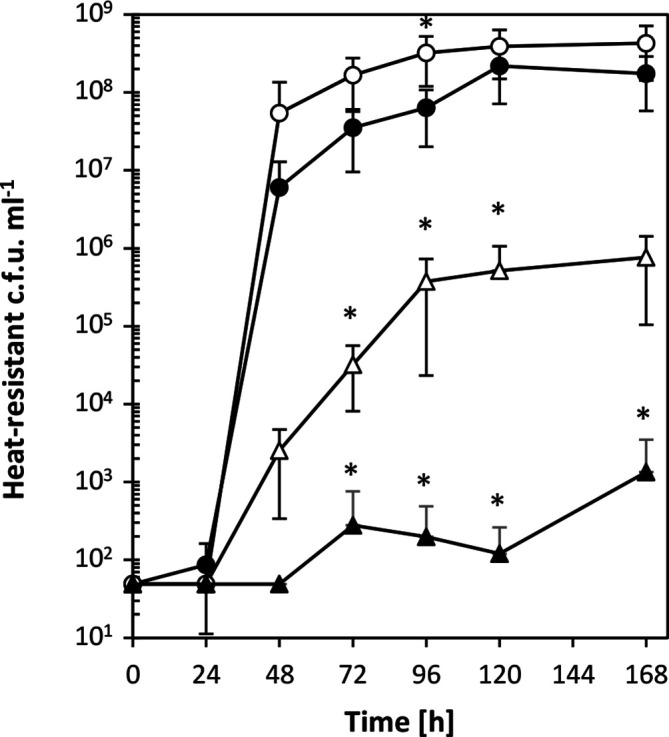Fig. 3.

Effect of qsrB deletion and overexpression on sporulation. The ability to sporulate in CBMS was assessed for the ATCC 824 parent strain containing the empty pMTL85141 vector (closed circles), the qsrB mutants containing the empty pMTL85141 vector (open circles), the qsrB mutants containing the pMTL85141-qsrB complementation plasmid (open triangles) and the ATCC 824 parent strain containing the pMTL85141-qsrB complementation plasmid (closed triangles). Sporulation efficiencies were assessed by determining the number of heat-resistant endospores produced at the indicated time points. Data represent the mean of four independent CBMS cultures with error bars indicating the standard deviation. Only the upper half of the error bar is shown in cases where the lower half extends beyond 101. Significant differences (P≤0.05) compared to the vector-carrying wild-type and vector-carrying qsrB mutant are indicated by an asterisk next to the relevant data point.
